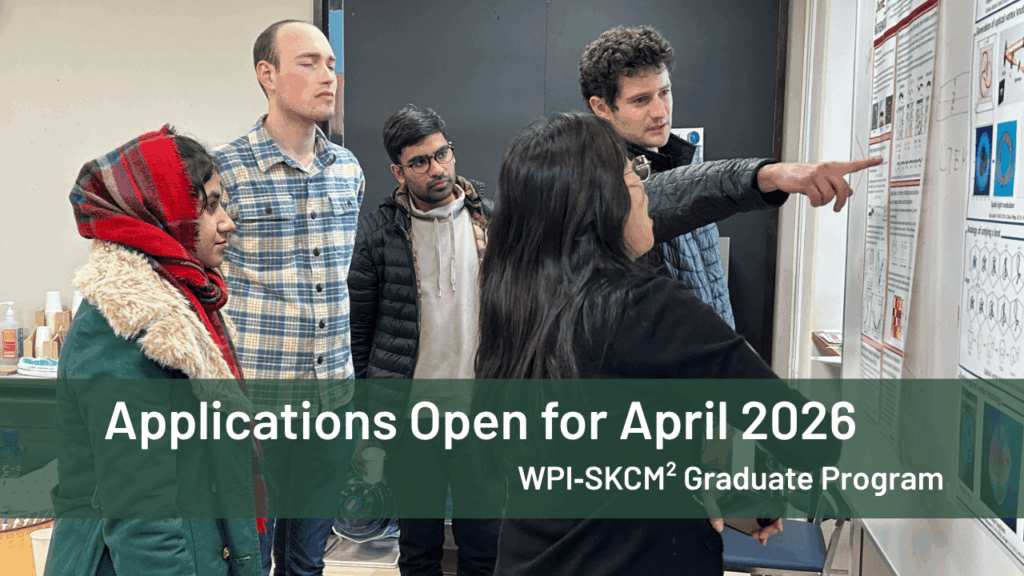Apply Now for the April 2026 Admission of the WPI‑SKCM² Graduate Program — Deadlines Approaching!
The International Institute for Sustainability with Knotted Chiral Meta Matter (WPI‑SKCM²) at Hiroshima University is now accepting applications for its fully funded graduate program, with deadlines approaching for the April 2026 cohort.
Admission Deadlines
Admission Deadlines
- April 2026 admission (PhD with 2‑year master’s): Preliminary screening due September 30, 2025; full application to Hiroshima University by late November 2025 for the Graduate School of Advanced Science & Engineering, or October–December 2025 for the Graduate School of Integrated Sciences for Life.
Two‑Step Application Process
1. Preliminary screening
Submit your application to the WPI‑SKCM² Graduate Education Committee, including your choice of up to three mentors from the provided list (one must be based at Hiroshima University). Applications are reviewed, and selected candidates are interviewed.
2. Full application
Once approved, applicants submit a full application to the relevant Hiroshima University graduate school (ADSE: Advanced Science & Engineering or ISL: Integrated Sciences for Life), following that school’s deadline.
Student Supports
- Tuition fee waiver and living stipends: The graduate students in the WPI-SKCM2 are eligible for entrance and full tuition fees exemption and financial support adequate to cover living expenses in Japan.
- Research funding & international exchange: Students can spend up to six months at partner WPI locations abroad (including MIT, Cambridge, CU Boulder), with travel and lodging covered.
- Mentorship & training: Each student is guided by a trio of advisors (one HU PI + two domestic/international co‑mentors) and takes core coursework developed by WPI‑SKCM², with the option to augment it with HU graduate-level classes.
- Vibrant campus life: Located at the Higashi‑Hiroshima campus of Hiroshima University, students have access to shared research spaces, informal coffee meetings, tutorials, global lectures (some by Nobel Laureates), local cultural events, and family workshops.
Who is eligible?
Ideal candidates should hold a bachelor’s or master’s degree in fields such as physics, mathematics, materials science, chemistry, biology, cosmology, or earth sciences. Strong applicants are those who value interdisciplinary collaboration, possess solid English communication skills, and wish to engage in topology and chirality research—no prior experience with knot theory is necessary.
For detailed information, helpful FAQs, and the list of potential mentors, visit the Graduate Education Application page.



